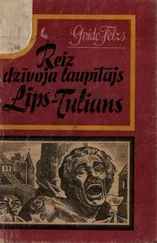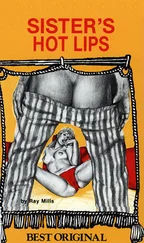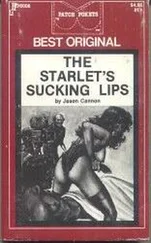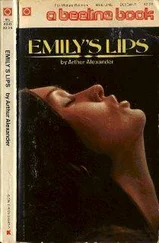I had arrived ten minutes late, intending to impress Miles by publicly greeting Marsha by name, perhaps even bussing her lightly on the cheeks. But Miles, louche as ever, had trumped me by sauntering in ten minutes after that, by which time Marsha and I had completed our salutatory rituals, she had gone back to greeting customers, and I was firmly seated, bored with reading and re-reading the menu, and impatiently tapping my fingernails on the table. He was as bad as Sophie. They made a fine pair.
I stopped tapping when I saw him and got to my feet, thus enabling him to peck my cheek without having to stoop all the way down to my level. It was encouraging to see, out of the corner of my eye, that some of the vaguely familiar faces had swivelled in our direction, their owners trying to ascertain whether Miles or I fell into the need-to-know category.
One of the reasons I enjoyed being seen with Miles was that he was so extraordinarily good-looking. But whenever we ate out together I was forced to address myself, not to his face full-on, but to his patrician profile. I couldn't work out whether he presented this to me because he knew it was his best angle and wanted to share it, or because it allowed him to keep an eye on the rest of the room without having to crick his neck.
I didn't care; it was a pleasure to be seen in the company of features so flawless. I just wished my own didn't blend quite so successfully into the scenery.
The table next to ours was empty, but not for long. Midway through my shaggy parasols, I saw a couple being led up by one of the waiters. The new arrivals were small yet perfectly formed, so trim and laundered and shiny it was as though they had been assembled from a plastic construction kit. His hair was short — but not skinhead-constructivist-minimalist short. Her suit was fashionable — but not sharp-end-shopaholic fashionable. They carried His and Hers soft leather briefcases. They really were perfect — a model couple. I wanted to cut them out and keep them.
But it wasn't their appearance that impressed me so much as his impeccable manners. It was the way that he, and not the waiter, stood behind his partner as she sat down, gently easing her chair into position before trotting round the table and sitting down himself. I felt a slight ache. No man had ever pulled a chair out like that for me.
After that, I kept glancing over at them during lulls in our conversation, and there were plenty of lulls, because Miles was still fretting about his fountain-pen. Or maybe it wasn't just the pen. Whatever it was, though, his attention kept wandering, and I was getting fed up with having to talk about his work, his family, his Giorgio Armani jacket and his Paul Smith tie in an effort to keep him amused. I fancied talking about me for a change, but Miles didn't seem particularly interested when I made overtures in that direction. It was probably the way he yawned and looked somewhere else that gave the game away.
Meanwhile, the perfect young man at the next table was pouncing on each word that dropped from his partner's lips and weighing it carefully as though it were a precious jewel. There had been a time, not so long ago, when Miles had treated my words and opinions as valuable gems. It wasn't as though I'd had a personality swap in the meantime. So what had gone wrong? Where was the problem? Why did I now get the impression he wished he were somewhere else?
'You're sure they're not your records?' I asked.
We had already established over the telephone they were not Miles's records, but the conversation was drying up again, and I was desperate to keep him from looking at his watch and saying, 'Well,' in that definitive way he had which was always a signal that he was about to get up and leave.
He was puffing angrily on a cigarette over a cup of espresso — angrily because he'd been trying for years to kick both habits, but never with any success. 'Of course they're not mine,' he snapped. 'I told you, I haven't played a record for years. I can't even listen to the bloody things; I can't stand all that hissing in the background. No one plays records now, no one except Sophie.'
'They're not hers.'
'How do you know?'
'She said so.'
Miles leaned across the table and spoke in a stage whisper. 'You know as well as I do that Sophie is not with the programme at the moment. She probably picked them up in the market and forgot.'
'I don't see why. She doesn't even like pop music.'
Miles, in his surprise, turned to face me full-on. 'She doesn't?'
'You've only been living with her for the past six years,' I pointed out.
For a few delicious seconds, he looked lost and confused, like a small boy whose mother is late arriving to pick him up from the school gates. I had the upper hand. But he rallied. Men like Miles always rallied. It was in their blood.
'All I know is they're not mine.'
'What am I supposed to do with them? I don't even have a turntable.' I didn't bother telling him the records were comfortably lodged with a couple of friends.
'Flog 'em,' said Miles, sounding like Captain Bligh. 'Take 'em to the Record and Tape Exchange.'
He called for the bill, we split it down the middle, and then he looked at his watch and said 'Well,' in that definitive way he had. As we got up to leave, he asked, as he always did, confident in the knowledge that I wouldn't take him up on it, 'Can I give you a lift to the nearest station?'
'You can do better than that,' I said. 'You can drop me off at my door.'
Miles instantly regretted his generous offer. I enjoyed watching him struggle not to let it show on his face. 'But you live in Stepney,' he said flatly. I could see his mind churning, trying to think of a way of backing down without seeming mean.
'It's Hackney,' I corrected him. 'But not any more. Now I live in Hampshire Place.'
Miles was visibly relieved at being let off the hook. Then what I'd just said sank in. 'Isn't that the same street as…?'
'The same house as Sophie,' I said. 'But you know she's not there right now.'
'Yes, of course,' said Miles. He showed no curiosity about the circumstances that had brought me to W11. Like Sophie, he simply assumed there was no obstacle to anyone living wherever they wanted. And the relief on his face grew ever more palpable as it dawned on him that my living in the same house as Sophie would absolve him of much of the responsibility he still felt towards her. Miles was not difficult to fathom.
We trotted out to his Peugeot — Sophie had a half-share in it, but didn't drive in town if she could help it. Miles, on the other hand, drove everywhere; it was a wonder his legs hadn't atrophied. Today he had driven all the way from Holland Park to White City and back, and now he was going to set out on that same journey all over again. You could have covered the distance by foot in half the time it took to inch through the traffic and find a parking space.
As we negotiated the one-way system into Hampshire Place, Miles politely declined my invitation to pop in and have another coffee. I wasn't going to let my disappointment show, even though I'd gone out and bought a cafetière and china cups and a packet of continental beans, just in case.
'You'll keep an eye on Sophie when she gets back, won't you,' he said, as I got out of the car.
And I assured him I would.
Sophie, confronted with the information that the man she loved had been pushing up daisies for over a decade, had thrown a major hysterical fit and screamed, 'I don't believe you!' over and over again. Between us, Marsha and I managed to steer her into bed and force-feed her with a couple of Marsha's sleeping pills.
And then Marsha led me upstairs, so that I could see for myself that flat number four was an ectoplasm-free environment. I followed numbly, feeling strangely bereaved. I'd listened to Sophie babbling on about Robert so much that it felt as though one of my own friends had just died.
Читать дальше











